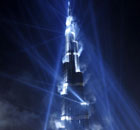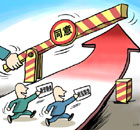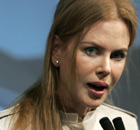Global Biz
EU trade chief nominee backs Russia's WTO entry
(Agencies)
Updated: 2010-01-12 19:26
 |
Large Medium Small |
BRUSSELS: The nominee to be the European Union's trade chief said on Tuesday he supported Russia's accession to the World Trade Organisation (WTO). Karel de Gucht told a hearing in the European Parliament that much now depended on Russia and whether it wants to join the WTO as part of a customs union with Belarus and Kazakhstan.
He also said Moscow was violating agreements on tariffs with the EU but he hoped these were temporary measures.
"Yes, I support the entry into the WTO of Russia. But of course it depends on Russia," de Gucht said.
Russia, the largest economy still outside the 153-country WTO, has increased some tariffs, including on timber exports and imports of new foreign cars.
De Gucht, setting out his policy plans to the European Parliament before it votes on January 26 on whether to approve the new European Commission, said this could be a problem.
"We also see that Russia, for example, is presently acting contrary to the engagements that they have been taking with the European Union on their entry to the WTO, although they are temporary measures," he said. "It is a very touchy matter."
Russia has said it will give the WTO a document to clear up confusion over its plans to join the world trade body.
The WTO has said Russia cannot join as a customs union with Kazakhstan and Belarus but they could join simultaneously as separate entities. The two former Soviet republics are further from entry than Moscow.










